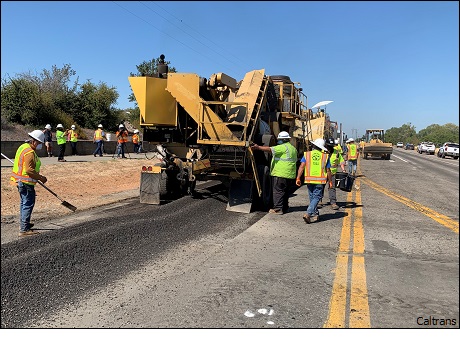
|
|

|
|
| April 25, 2024 |
|
Where does rubber meet the (plastic) road? 
OROVILLE – (INT) - Caltrans is repaving a section of Highway 162 in Oroville using recycled asphalt pavement and liquid plastic made with single-use, plastic bottles.
It’s the first time Caltrans has paved a road using 100 percent recycled materials. The department is testing the material for later use throughout the state. A one-mile segment of pavement using this treatment will recycle 150,000 plastic bottles. The "plastic" roadway has been found in previous tests to be more durable and last two to three times longer than traditional hot-mixed asphalt pavement. This pilot will be the first test on a state highway. Caltrans currently has a cold in-place asphalt recycling program that uses large machines to remove 3 to 6 inches of roadway surface and grind up the asphalt while mixing it with a foamed binding agent made of bitumen, a leftover sludge from oil refining. However, the recycled material used in this process is only durable enough to serve as the roadway base. Trucks need to deliver hot-mix asphalt from a production plant miles away and place a final layer over the base. Using this new technology developed by TechniSoil Industrial of Redding, a recycling train of equipment grinds up the top 3 inches of pavement and then mixes the grindings with a liquid plastic polymer binder, which comes from a high amount of recycled, single-use bottles. The new asphalt material is then placed on the top surface of the roadway, eliminating the need for trucks to bring in outside material for a paving operation. By eliminating the need to haul asphalt from the outside, this process can significantly cut greenhouse gas emissions. Story Date: September 8, 2020
|